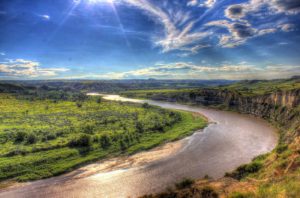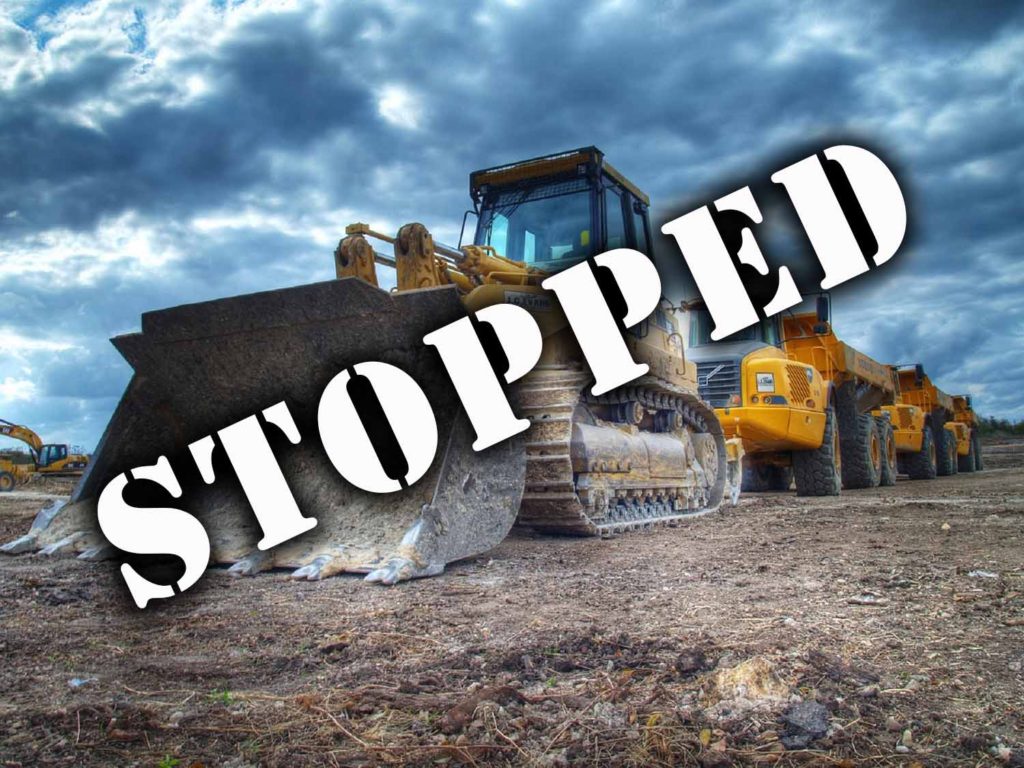Judge requires Trump Administration to conduct an environmental review that takes climate change and other factors into account.
Last night, Judge Brian Morris may have delivered the final blow to TransCanada’s Keystone XL tar sands pipeline, vacating the 2017 record of decision by President Trump to issue the Presidential Permit for the project. He ruled that The Department of State’s analysis of critical issues fell short of a “hard look” and requires a supplement to the 2014 Supplemental Environmental Impact Statement (SEIS) in order to comply with its obligations under the National Environmental Policy Act (NEPA).

“Today’s ruling is a victory for the rule of law, and it’s a victory for common sense stewardship of the land and water upon which we all depend,” said Dena Hoff, Glendive, Montana, farmer and member-leader of Northern Plains Resource Council. “Despite the best efforts of wealthy, multinational corporations and the powerful politicians who cynically do their bidding, we see that everyday people can still band together and successfully defend their rights.”
The Court enjoins (prohibits) TransCanada from engaging in any activity in furtherance of the construction or operation of Keystone and associated facilities until the Department of State has completed a supplement to the 2014 Environmental Impact Statement that complies with the requirements of the National Environmental Policy Act and Administrative Procedure Act.
Judge Morris, specifically, ruled that the following issues have not been adequately considered:
- The effects of current oil prices on the viability of Keystone
- The cumulative effects of greenhouse gas emissions from the Alberta Clipper expansion and Keystone
- An updated modeling of potential oil spills and recommended mitigation measures
“We’re thrilled with Judge Morris’s ruling today. In essence, this decision sends TransCanada back to the drawing board,” said Northern Plains’ chairwoman Becky Mitchell.
“I was asked by a Keystone XL fieldman if I really wanted to take on a multi-billion dollar corporation,” recalls Don Brown, a Montana landowner whose ranch would have been crossed by the pipeline. “I took this to be a threat of condemnation where my constitutional right to protect my property was violated.”
John Harter, Dakota Rural Action chairperson and South Dakota landowner who would have been crossed by this pipeline agreed. “It’s nice to have a Federal Judge agree with the common sense analysis we’ve done,” he said. “Basically you just can’t reverse a decision [by a former president] based on environmental and scientific facts just because you feel like it.”
As county sheriffs have been running notices of eminent domain out to farmers and ranchers along the pipeline route, Northern Plains, Dakota Rural Action, and a host of tribal and community organizations have mobilized against the pipeline. They’ve fought hard in the face of a project that seemed almost unstoppable after the Trump Administration took power. “I was asked by a Keystone XL fieldman if I really wanted to take on a multi-billion dollar corporation,” recalls Don Brown, a Montana landowner whose ranch would have been crossed by the pipeline. “I took this to be a threat of condemnation where my constitutional right to protect my property was violated.”
“Despite the best efforts of wealthy, multinational corporations and the powerful politicians who cynically do their bidding, we see that everyday people can still band together and successfully defend their rights.”

The groups had planned to continue on-the-ground actions including protests, and building solar power stations along the path. The lawsuit brought by Northern Plains and others pointed out that the 2014 EIS that was used to determine the project’s impact underestimates its threat to the health of water, land, and communities. Since 2014, TransCanada’s other pipelines have experienced multiple accidents and spills. The pipeline would cross several major waterways including the Yellowstone and Missouri Rivers.
“It’s nearly as good a ruling as we could have hoped for – he decided in our favor on almost all of our claims,” Mitchell said. “Today, we saw the results of grassroots democracy in action, winning for water and people!”
“All Americans should be proud that our system of checks and balances can still function even in the face of enormous obstacles,” Hoff said.
Related stories:
Keystone 1 Pipeline Spills 210,000 Gallons In S.D.
NEPA, The Environmental Law That Gives You A Voice, Is Under Assault


